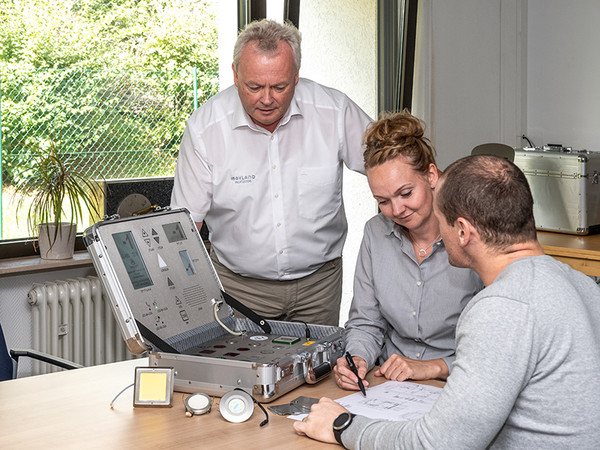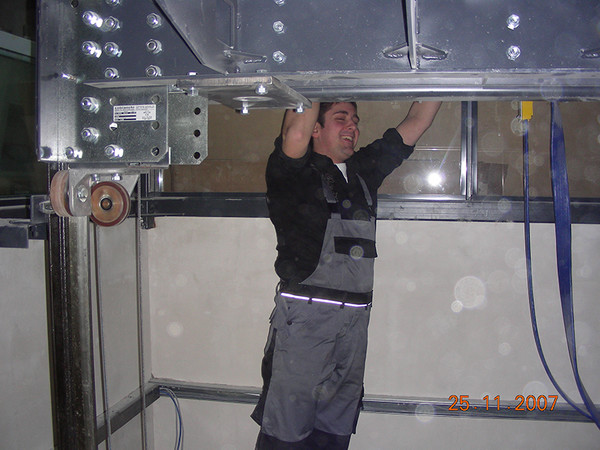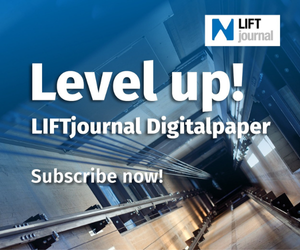Modernisation from the point of view of an assembly company
Modernising lifts has developed into an important challenge for lift companies in recent years in Europe – as a result of demographic change and the regular revision of the legal foundations.
Whether we are talking about a component manufacturer, assembly company or maintenance firm: they all have to grapple with this trend. Modernising lifts is a worthwhile investment. Normally, it lowers the operating and maintenance costs and increases operating security. In addition, it helps to preserve and increase the value of a property.
Modernising a lift is not the same as maintenance or repair, which only ensure that the same standard is retained. Repair work in which the standard is increased is covered by the concept of modernisation. Why is that important? For landlords, this distinction is important if it involves the costs and the possible need to pass them on to the lift’s users.
Planned modernisation increases lift availability
 First, it should be clarified jointly with the customer what requirements should be set for the modernised lift. Photo: © Mayland Aufzüge
First, it should be clarified jointly with the customer what requirements should be set for the modernised lift. Photo: © Mayland AufzügeFrequently, the unexpected failure of main components that are no longer available or the enormous costs for repairing them result in the lift having to be modernised. Planned modernisation increases lift availability and naturally its safety.
Renewing outmoded, worn-out assemblies eliminates potential weaknesses and avoids expensive repairs and failures. This has positive effects on users and increases the overall economic efficiency of the lift.
New components correspond to the current standard and are much more efficient. The subjects of planning security and liability are important factors in deciding on modernisation. Legally compliant modification of lifts to the state of the art by means of a modernisation often plays a great role in the decision.
Expert support advisable
If the decision has been taken to modernise, the clients provide specific guidelines and specify the process. Since this is a complex task, expert support is advisable. Both neutral expert planners as well as the certified inspection bodies (TÜV, Dekra, GTÜ) are expert contacts for making sure the building measure observes the requirements.
First, it should be clarified jointly with the customer what requirements should be set for the modernised lift. The subsequent inspection, appraisal and documentation of the old lift are indispensable for drawing up the tender. At the same time, the parties can check whether any components can still be used – this will reduce the effort and costs involved.
A call for tenders then has to be drawn up. An offer can only made with a detailed call for tenders and comparison of different providers. One should pay as much attention to the technology being complete as well as to its being correct and to its long-term economic efficiency.
Encrypted systems
 Photo: © Mayland Aufzüge
Photo: © Mayland AufzügeIn recent years, the subject of market openness is playing an increasingly great role in the decision for a provider. This means rejecting dependence on manufacturers whose systems are encrypted and which as a result make maintenance and malfunction services impossible.
Another important factor in awarding the order is time. How fast can the work be carried out? This is enormously important for the lift operator. Moreover, it should find out as early as possible when and how long the lift will be unavailable to enable it to plan measures to bridge this period.
In the years to come, the complex subject of modernisation of lifts will ensure high capacity utilisation of the lift industry. The tasks for all parties concerned are extensive: suppliers have to further develop the design and manufacture of their components according to the current guidelines, assembly companies, maintenance companies, inspection institutions and associations have to tackle the lack of skilled workers. The challenge is there – let’s tackle it together!
Julia Mayland
The author works in the VFA Board of Directors for press and publicity work. The certified business administrator has been working in the family company Mayland Aufzüge since 2010 as authorised signatory.
More information:vfa-interlift.de

























Write a comment